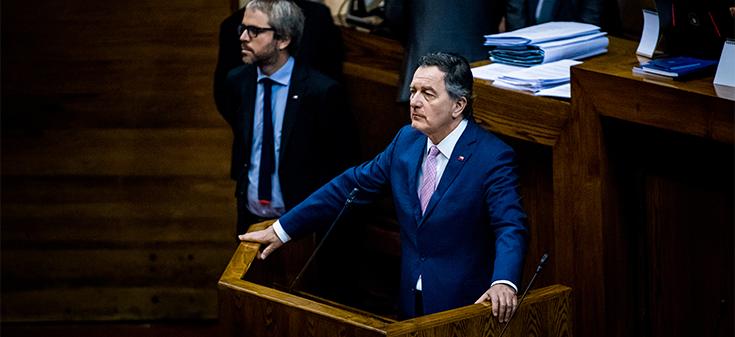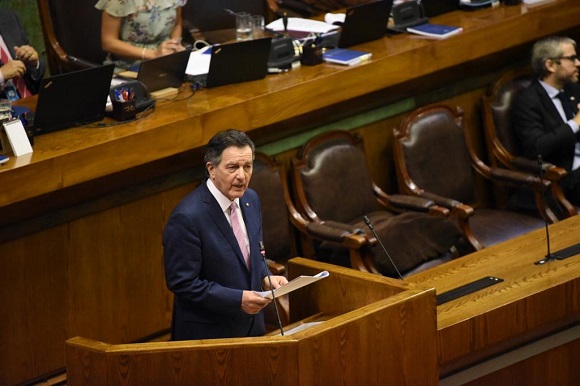"It is a central axis of our economic and commercial projection towards the Pacific basin."

The Minister of Foreign Affairs, Roberto Ampuero, attended the Chamber of Deputies today to refer to the Draft Agreement which approve the Comprehensive and Progressive Trans-Pacific Partnership Treaty (CPTPP), a plurilateral economic integration treaty signed by Australia, Brunei Darussalam, Canada, Chile, Malaysia, Mexico, Japan, New Zealand, Peru, Singapore and Vietnam.
In his speech, the Minister stated that the CPTPP "is a central axis of our economic and commercial projection towards the Pacific basin, a region that will determine our global insertion in the coming decades, as well as reflecting a series of principles that govern our foreign policy, such as regional integration, economic openness and the promotion of multilateralism".
In this sense, he explained that, in addition to "seeking to advance in trade liberalization, it aims to be the engine of inclusive growth. In this regard, he added that "Chile is a country of 18 million inhabitants, which is why international economic insertion has been and will continue to be an essential component of our growth and development strategy.
The Minister indicated that the CPTPP "is the largest integration block in the Asia-Pacific" since its members "represent 13% of world GDP and concentrate 16% of all our exports". "The CPTPP will improve market access for our products in Japan, Canada, Malaysia, and Vietnam for approximately 3,100 new Chilean products that are not incorporated. We are therefore talking about jobs, living conditions, better wages, higher exports for Chile," he added.

He also pointed out that "it is a last-generation agreement," as it "establishes standards and disciplines according to the reality of current trade." Among those elements, he highlighted the commitment to inclusive trade, as it reaffirms the importance of promoting corporate social responsibility, cultural identity and diversity, environmental protection and conservation, protection of fundamental labor rights, gender equality and sustainable development, as well as the importance of laws to regulate in the public interest.
It also noted that "it is the first trade agreement to contain a chapter specifically devoted to development. In this, the parties reaffirm their commitment to promote and strengthen open trade, which will seek to improve the well-being of the population and reduce poverty, raise the standard of living and create new employment opportunities.
The Chancellor also recalled that the agreement was signed on March 8, 2018, under the previous administration. In this sense, he said that "what we hope is that conscious and consistent with this and also conscious of the importance of State policy in foreign policy, those sectors that were next to this project also vote according to what they promised, defended, promoted and signed at that time.
Artículos relacionados
 Miércoles, 23 de abril de 2024
Subsecretaria Gloria de la Fuente encabezó reunión de consultas políticas con Argentina
Miércoles, 23 de abril de 2024
Subsecretaria Gloria de la Fuente encabezó reunión de consultas políticas con Argentina










